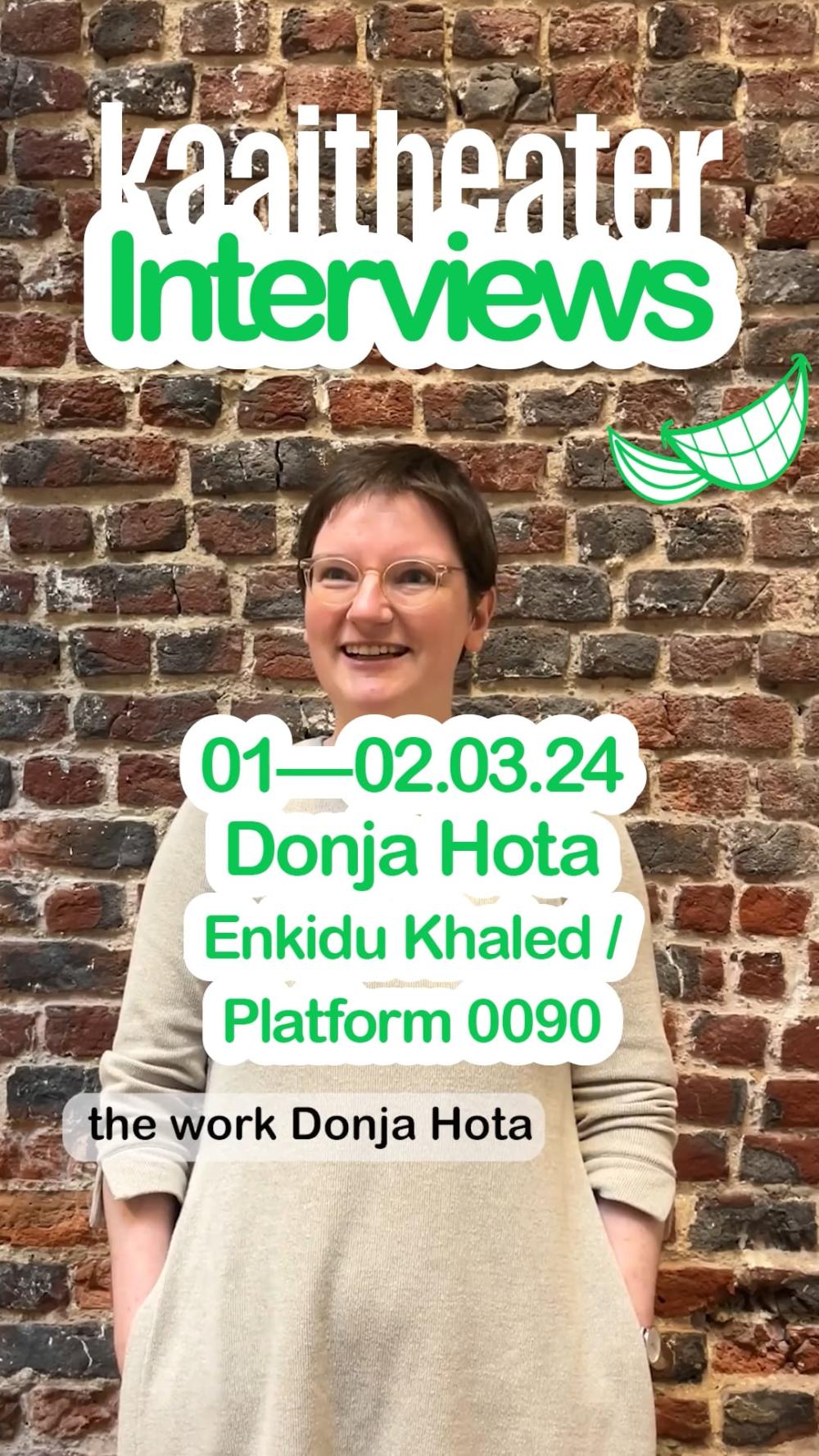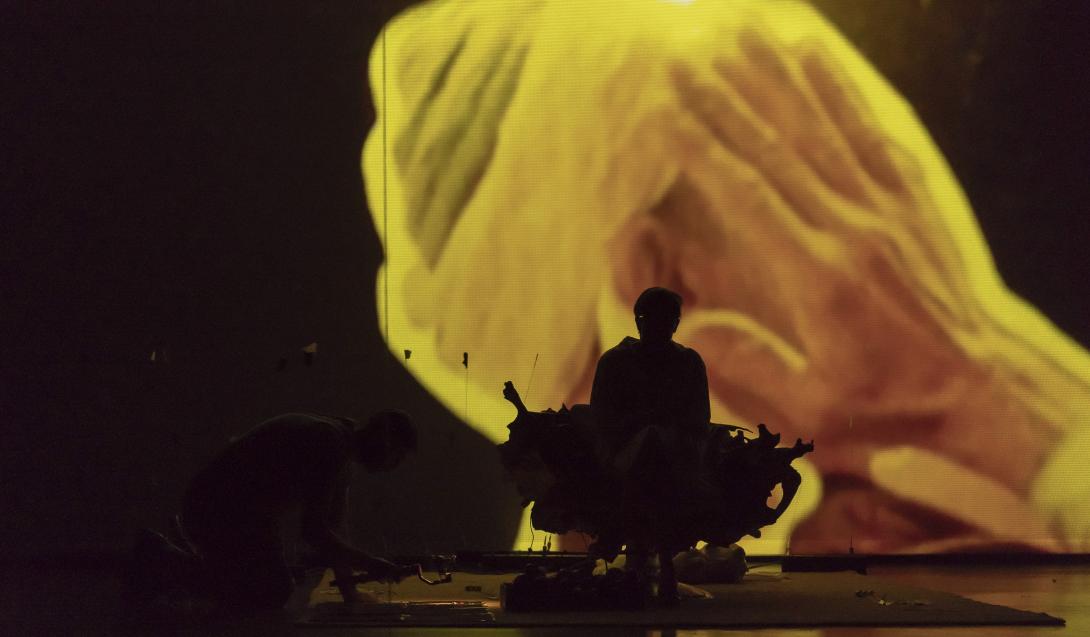Real life needs both art and activism
Interview with Line Mertens, by Mara Ittel & Eva Decaesstecker (Kaaitheater, February 2024)
Line Mertens is one of the performers invited by Enkidu Khaled to write, co-create and perform in his newest project Donja Hota. Two weeks before the premiere, we talked to Line about this mysterious collective character, Donja Hota.
Donja Hota is a project by Enkidu Khaled, but in collaboration with a lot of women. How was this group formed?
For the creation of his performance, Enkidu Khaled gathered a group of artists who all have different backgrounds and different ways of working. He invited us to work around the figure of Donja Hota, a fictional character in the tradition of Don Quixote, but with a completely different narrative. In the piece, we all embody Donja Hota. Every one of us is Donja Hota, but we are also representing our own life history, our own struggle. This makes Donja Hota a figure of struggle, of resistance in a sense, of feminism.
Where did the figure of Donja Hota come from?
The character Donja Hota is fuelled by the spirit of Nawal El Saadawi. She was a writer, an activist, a doctor. And she was also a revolutionary leader. In a fierce and bold way, she dedicated her life to activism to raise knowledge and awareness about the female body. She started her work in Egypt, where she was born, and travelled around the world. Enkidu approached each of us with Nawal’s work in hand, tapping into our specific history, linking us to her. She was the entry point for our process.
This doesn’t mean that we are going to stage her work and life. We are inspired by her way of being, and her sense of connection to activism. She fought against the genital mutilation of girls in the region where she was born, but connected this fate to the oppression of women around the globe. She had a drive to teach people, to share knowledge about the most intimate parts of our bodies. The way she used these topics to question the structural societal systems, how she was a force and a voice on collective struggle throughout differences, that resonates a lot with what we try to do in our daily life, to understand what we are doing and why we continue doing what we do.
Is there a specific way in which you work together?
First of all, we all knew Enkidu, but we didn't know each other. The first weeks were therefore very loose, and more about connecting. There was a lot of talking, a lot of reflecting upon what we had done as artists before, how we personally connected to Nawal El Saadawi, how we could connect to each other. We tried to hook onto each other's material. And this is also a big part of what Enkidu does and facilitates: helping everybody realise their fullest potential and then assisting us to find connections between each other – not as a constellation of loose stories, but as a group, as a unit. Little by little the process shifted to how we could connect with an audience. What kinds of relationships we could have with an audience.
And what is the relationship between Donja Hota and Nawal?
Donja Hota has a lot of meanings. It started from a collection of different things, as a play on words. It refers to life and to the whale. The whale as a figure of struggle, but also as something all-encompassing, something to an extent unknown, something swimming deep oceans. Together, this becomes a character who, like Don Quixote, is in continuous struggle. But rather than modelling the Donja Hota on Don Quixote, we choose to model it on a real figure who has contributed to actual change. Nawal never fought windmills. She fought in her community and for her community. And though Donja Hota is often mistaken for a silly hero and the art and activism we’re doing are called ridiculous, as if it was not part of real life, I think Nawal shows that real life needs both art and activism.
Watch this interview in video version.

